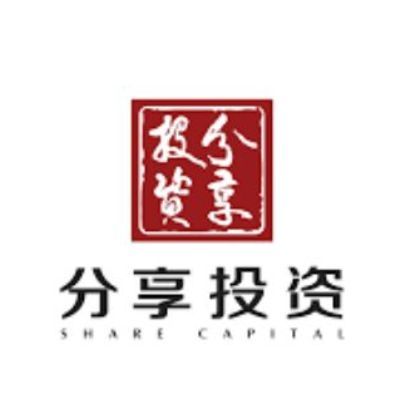Tencent
DATABASE (46)
ARTICLES (61)
Founded in 2004 by Liu Qiangdong (Richard Liu) with about 30 staff, JD.com (JD stands for Jingdong) has grown to become Alibaba's biggest rival and is backed by Tencent. Similar to Amazon, the NASDAQ-listed JD.com builds and controls its own distribution/logistics network, giving it an advantage in a country used to poor package delivery services. It is an investor in Indonesian ride-hailing company Gojek, and also operates an Indonesian version of its e-commerce platform, JD.id.
Founded in 2004 by Liu Qiangdong (Richard Liu) with about 30 staff, JD.com (JD stands for Jingdong) has grown to become Alibaba's biggest rival and is backed by Tencent. Similar to Amazon, the NASDAQ-listed JD.com builds and controls its own distribution/logistics network, giving it an advantage in a country used to poor package delivery services. It is an investor in Indonesian ride-hailing company Gojek, and also operates an Indonesian version of its e-commerce platform, JD.id.
Software Architect and Co-founder of Modoo
Du Jiali graduated in 2010 with a bachelor’s degree in Computer Science from Beihang University, previously known as Beijing University of Aeronautics and Astronautics.After his graduation, he started working as software engineer at Taobao until 2011. Then he joined Tencent as a senior software development engineer until 2014 when he became the director of platform technology at Youyou Yongche.In 2015, he co-founded Modoo and became its software architect.
Du Jiali graduated in 2010 with a bachelor’s degree in Computer Science from Beihang University, previously known as Beijing University of Aeronautics and Astronautics.After his graduation, he started working as software engineer at Taobao until 2011. Then he joined Tencent as a senior software development engineer until 2014 when he became the director of platform technology at Youyou Yongche.In 2015, he co-founded Modoo and became its software architect.
Huayi Brothers Media Corporation
Established in 1994 by Wang Zhongjun and Wang Zhonglei, Huayi Brothers Media Corporation (H. Brothers) is a large media and entertainment group in mainland China. It focuses on three major areas: film, TV and celebrity management; commercial properties that promote entertainment companies’ IP such as theme parks and film-themed tourist destinations; and new media projects such as social media, online gaming and internet fan community management. Alibaba, Tencent Holdings and PingAn have all been shareholders in H. Brothers since 2014.
Established in 1994 by Wang Zhongjun and Wang Zhonglei, Huayi Brothers Media Corporation (H. Brothers) is a large media and entertainment group in mainland China. It focuses on three major areas: film, TV and celebrity management; commercial properties that promote entertainment companies’ IP such as theme parks and film-themed tourist destinations; and new media projects such as social media, online gaming and internet fan community management. Alibaba, Tencent Holdings and PingAn have all been shareholders in H. Brothers since 2014.
One of the earliest backers of Chinese internet firms, most famously Tencent and JD.com, Hillhouse Capital is a US$20 billion fund today. Founded in 2005 by Zhang Lei, a Yale School of Management graduate (the initial US$20 million used to start Hillhouse came from the Yale Endowment), the long-term fundamental equity investor is focused on China and Asia, particularly the consumer, TMT, industrials and healthcare sectors. It manages capital for institutional clients, e.g., university endowments, foundations, sovereign wealth funds and pension funds, and invests across all equity stages.
One of the earliest backers of Chinese internet firms, most famously Tencent and JD.com, Hillhouse Capital is a US$20 billion fund today. Founded in 2005 by Zhang Lei, a Yale School of Management graduate (the initial US$20 million used to start Hillhouse came from the Yale Endowment), the long-term fundamental equity investor is focused on China and Asia, particularly the consumer, TMT, industrials and healthcare sectors. It manages capital for institutional clients, e.g., university endowments, foundations, sovereign wealth funds and pension funds, and invests across all equity stages.
Facebook is a social networking platform founded by Mark Zuckerberg and partners in 2004. It is listed on the NASDAQ exchange under ticker code FB. Throughout its development it has acquired various complementary social media and networking services, such as Instagram and WhatsApp.As an investor, Facebook has invested in a wide range of companies. It invested in and later acquired virtual reality headset developers Oculus, and also invested in e-commerce enabler Meesho. In 2020, it joined Google, Tencent and other major tech investors as an investor in Gojek.
Facebook is a social networking platform founded by Mark Zuckerberg and partners in 2004. It is listed on the NASDAQ exchange under ticker code FB. Throughout its development it has acquired various complementary social media and networking services, such as Instagram and WhatsApp.As an investor, Facebook has invested in a wide range of companies. It invested in and later acquired virtual reality headset developers Oculus, and also invested in e-commerce enabler Meesho. In 2020, it joined Google, Tencent and other major tech investors as an investor in Gojek.
China Literature was founded in March 2015 by merging Tencent Literature and Shanda Literature. It went public on the Stock Exchange of Hong Kong in November 2017. It owns online reading brand Qidian.com and acquired film and television production company New Classic Media in August 2018. It focuses on building a premium e-reading platform at home and abroad while seeking business opportunities in the adaptation of its copyrighted literary works into film and television productions, comics and animation and video games. As at late June 2019, there are over 11.7m pieces of literary works in its online library.
China Literature was founded in March 2015 by merging Tencent Literature and Shanda Literature. It went public on the Stock Exchange of Hong Kong in November 2017. It owns online reading brand Qidian.com and acquired film and television production company New Classic Media in August 2018. It focuses on building a premium e-reading platform at home and abroad while seeking business opportunities in the adaptation of its copyrighted literary works into film and television productions, comics and animation and video games. As at late June 2019, there are over 11.7m pieces of literary works in its online library.
The merged entity of China’s two largest local services rivals, Meituan has a market cap of HKD 1.93tn in the Hong Kong Stock Exchange, where it is listed. Its total transaction volume reached RMB 682bn in 2019. In 2015, Meituan merged with Chinese rival Dianping and was known as Meituan-Dianping, but the brand has since been unified to Meituan. Now headed by Meituan founder Wang Xing, the Tencent-backed company is China’s largest on-demand, or O2O (online-to-offline), services provider, offering food delivery, restaurant booking, group buying, movie ticket booking and more.
The merged entity of China’s two largest local services rivals, Meituan has a market cap of HKD 1.93tn in the Hong Kong Stock Exchange, where it is listed. Its total transaction volume reached RMB 682bn in 2019. In 2015, Meituan merged with Chinese rival Dianping and was known as Meituan-Dianping, but the brand has since been unified to Meituan. Now headed by Meituan founder Wang Xing, the Tencent-backed company is China’s largest on-demand, or O2O (online-to-offline), services provider, offering food delivery, restaurant booking, group buying, movie ticket booking and more.
President and Co-founder of Bailian.ai
Yao Conglei graduated from Peking University in 2008 with a degree in Computer Science. He is CTO of AI firm Kika Tech, which invested in Bailian.ai's seed round. Before Kika, Yao was Technology VP at Wandoujia, a search engine for mobile entertainment. Yao worked for the HP Research Institute and Tencent in the areas of content mining and recommendation systems respectively.
Yao Conglei graduated from Peking University in 2008 with a degree in Computer Science. He is CTO of AI firm Kika Tech, which invested in Bailian.ai's seed round. Before Kika, Yao was Technology VP at Wandoujia, a search engine for mobile entertainment. Yao worked for the HP Research Institute and Tencent in the areas of content mining and recommendation systems respectively.
CTO and Co-founder of Squirrel AI
CTO and co-founder of Squirrel AI, Fan Xing obtained his bachelor’s and master’s degrees in computer science from Northwestern Polytechnical University in Xi’an, China, between 1999 and 2006. After graduating, he worked at several Internet companies as a software engineer and architect. He was CTO and R&D Director of IMO Cloud Office from 2012–2015, a senior researcher and platform technology manager at ShanDa Interactive Entertainment from 2010–2012, a server manager at 51.com from 2008–2010 and a senior engineer at Tencent from 2006–2008. He joined Squirrel AI in 2015.
CTO and co-founder of Squirrel AI, Fan Xing obtained his bachelor’s and master’s degrees in computer science from Northwestern Polytechnical University in Xi’an, China, between 1999 and 2006. After graduating, he worked at several Internet companies as a software engineer and architect. He was CTO and R&D Director of IMO Cloud Office from 2012–2015, a senior researcher and platform technology manager at ShanDa Interactive Entertainment from 2010–2012, a server manager at 51.com from 2008–2010 and a senior engineer at Tencent from 2006–2008. He joined Squirrel AI in 2015.
Brad Bao (Bao Zhoujia) graduated in International Marketing at Wuhan University in 1997 and obtained an MBA from UC Berkeley in 2005. He worked in marketing at FORMICA from January 1997 to March 1998 and went on to work at Kodak until April 2000. He was at IBM until April 2001 when he finally decided to become an entrepreneur and co-founded NORICT in Beijing.He was also the GM and VP of the US branch for Tencent from 2005–2012. He joined Kinzon Capital as managing partner in September 2013 and co-founded LimeBike in the US in November 2016.
Brad Bao (Bao Zhoujia) graduated in International Marketing at Wuhan University in 1997 and obtained an MBA from UC Berkeley in 2005. He worked in marketing at FORMICA from January 1997 to March 1998 and went on to work at Kodak until April 2000. He was at IBM until April 2001 when he finally decided to become an entrepreneur and co-founded NORICT in Beijing.He was also the GM and VP of the US branch for Tencent from 2005–2012. He joined Kinzon Capital as managing partner in September 2013 and co-founded LimeBike in the US in November 2016.
Co-founder and CEO of Xiaoming Bike
Chen Yuying majored in Japanese and tourism in the university. After graduation, she began her startup career by establishing a review website with her team. However, her first startup failed due to the immature internet business environment. But the startup experience helped her held a post in internet business department of Alibaba Group and Tencent. In 2014,She joined Tujia website, an online booking website that connects travelers and hosts, as COO and helped it gain funding twice. In 2017, Chen Yuying joined Xiaoming Bike as CEO and began differentiated marketing strategies, focusing on strong supplement chain and operation in three tier city.
Chen Yuying majored in Japanese and tourism in the university. After graduation, she began her startup career by establishing a review website with her team. However, her first startup failed due to the immature internet business environment. But the startup experience helped her held a post in internet business department of Alibaba Group and Tencent. In 2014,She joined Tujia website, an online booking website that connects travelers and hosts, as COO and helped it gain funding twice. In 2017, Chen Yuying joined Xiaoming Bike as CEO and began differentiated marketing strategies, focusing on strong supplement chain and operation in three tier city.
Founder and CEO of DuduBus
Liu Yixun graduated from the School of Science and Technology of Guangdong University of Foreign Studies in 2012 with a bachelor's degree in Computer Science. While studying in the university, he interned at Alibaba for about a year around 2011 and started a company to create software for lighting manufacturers in Zhongshan, a city famous for lamp production. After graduation, he worked at Tencent's e-commerce and Tenpay department as a product manager. He resigned from Tencent in 2014 and found DuduBus in 2015, serving as CEO since then.
Liu Yixun graduated from the School of Science and Technology of Guangdong University of Foreign Studies in 2012 with a bachelor's degree in Computer Science. While studying in the university, he interned at Alibaba for about a year around 2011 and started a company to create software for lighting manufacturers in Zhongshan, a city famous for lamp production. After graduation, he worked at Tencent's e-commerce and Tenpay department as a product manager. He resigned from Tencent in 2014 and found DuduBus in 2015, serving as CEO since then.
MININGLAMP Technology is a B2B big data solutions provider. Founded in Beijing in 2014, its product lines range from data platforms and data applications to data visualizations. The company sells three major products: data platform BDP, data mining tool DataInsight and a data visualization suite. MININGLAMP Technology recently raised RMB 2bn in its Series D round from investors such as Tencent.
MININGLAMP Technology is a B2B big data solutions provider. Founded in Beijing in 2014, its product lines range from data platforms and data applications to data visualizations. The company sells three major products: data platform BDP, data mining tool DataInsight and a data visualization suite. MININGLAMP Technology recently raised RMB 2bn in its Series D round from investors such as Tencent.
Based in the Netherlands, Prosus is a global investor in consumer tech and Internet companies. It is a subsidiary of South African tech investment company Naspers. In August 2021 the two companies completed a cross-holding agreement in which Naspers owns 57% of Prosus while Prosus owns 49% of Naspers. The two companies share a single board.Prosus is the largest shareholder in Chinese tech giant Tencent and Russian tech platform Mail.ru. Meanwhile, its venture division invests in a variety of fintech, food delivery, and other consumer tech companies. In Indonesia, it has invested in Bibit, a stock and mutual funds investment platform, as well as fishery trading and community development startup Aruna. It has also invested in edtech platforms like Indian executive learning platform Eruditus, and US-based coding education company SoloLearn.
Based in the Netherlands, Prosus is a global investor in consumer tech and Internet companies. It is a subsidiary of South African tech investment company Naspers. In August 2021 the two companies completed a cross-holding agreement in which Naspers owns 57% of Prosus while Prosus owns 49% of Naspers. The two companies share a single board.Prosus is the largest shareholder in Chinese tech giant Tencent and Russian tech platform Mail.ru. Meanwhile, its venture division invests in a variety of fintech, food delivery, and other consumer tech companies. In Indonesia, it has invested in Bibit, a stock and mutual funds investment platform, as well as fishery trading and community development startup Aruna. It has also invested in edtech platforms like Indian executive learning platform Eruditus, and US-based coding education company SoloLearn.
Co-founder of Reworld
Yao Guangshi is a well-known game distributor and angel investor in the gaming industry. Born in 1972, he graduated from the University of Shanghai for Science and Technology in 1992. He studied for an EMBA in Renmin University of China from 2011 to 2013. In 1995, he joined the edible oil manufacturer Luhua Group, where he was in charge of import and export management. He founded Jinshi Software in 1997. In 2003, he became the exclusive distributor of many prominent gaming companies like Tencent and Shengqu Games in Shandong province. In 2008, he founded Xinhe Technology as an exclusive distributor for top games including Genghis Khan and Shumen. He invested in the online game developer Locojoy in 2011 and joined the company in 2013. In 2018, he co-founded Beijing Code View Technology, which launched Reworld in 2019.
Yao Guangshi is a well-known game distributor and angel investor in the gaming industry. Born in 1972, he graduated from the University of Shanghai for Science and Technology in 1992. He studied for an EMBA in Renmin University of China from 2011 to 2013. In 1995, he joined the edible oil manufacturer Luhua Group, where he was in charge of import and export management. He founded Jinshi Software in 1997. In 2003, he became the exclusive distributor of many prominent gaming companies like Tencent and Shengqu Games in Shandong province. In 2008, he founded Xinhe Technology as an exclusive distributor for top games including Genghis Khan and Shumen. He invested in the online game developer Locojoy in 2011 and joined the company in 2013. In 2018, he co-founded Beijing Code View Technology, which launched Reworld in 2019.
This AI startup helps Tencent, Xiaomi chatbots “think” and “talk” like humans
Trio.AI makes communicating with machines easier and more effective – even fun
Zhang Yiming: The man who said no to Baidu, Alibaba and Tencent
Rejecting offers from BAT to grow ByteDance, Zhang Yiming has quickly built up a social media content empire that includes TikTok and Toutiao, challenging the incumbents
This Tencent-backed startup helps content creators make real money with their own e-shops in WeChat
AltStory: Putting the audience in the director's chair
The Chinese startup has taken interactivity to another level by letting TV and movie viewers decide where the action goes, and how it all ends.
Kuaikan Comic: Discover the potential of Chinese comics
This startup wants to prove Japan isn’t the only comic game in town
From state to BAT, China backs startups for global AI dominance
Finance, automobile, retail and healthcare seen to lead China’s advances and gains in AI, as part of a RMB 10 trillion economy by 2030
Allen Zhang: Father of WeChat and its string of innovations
Get to know the man behind the app in every Chinese user's smartphone
EverSafe Online: Pre-empting cyber attacks so companies avoid huge losses
Making cybersecurity affordable for SMEs, Shenzhen-based Eversafe Online launches China's first business intelligence search engine to track, pre-empt cyber attacks
Mass production and delivery delays – common challenges facing China EV startups
As Tesla postponed delivery yet again, its Chinese rivals are scrambling too
Beyond ride-hailing: Gojek, Grab and all their friends
Now that Grab and Go-Jek are in a faceoff on a regional scale, here's a look at how Southeast Asia's two biggest unicorns – and their investors – could be shaping the local digital economies and startup ecosystems
Neil Shen: The super unicorn hunter
His bet on ByteDance, the startup that gave the world TikTok, helped Neil Shen top this year's Forbes Midas List. But for Shen, even in that deal he once made the wrong call
300 million users in 3 years: Cracking e-commerce the Pinduoduo way
The dark horse of online retail is our key to understanding China's new consumer growth story
In depth: The business ecosystems China’s tech giants and unicorns build
Startups could accept to join Alibaba, Tencent or other tech giants in their ecosystems and scale quickly. Or they could say no and keep their independence. But do they really have a choice?
Haoyiku makes it possible to offer genuine products at lower prices
When e-commerce is combined with social media, everybody wins
Dai Wei and his Ofo: Fighting till the last act?
How the college student who founded a global bike-sharing sensation also led it to the verge of bankruptcy through a string of mistakes
Sorry, we couldn’t find any matches for“Tencent”.





































